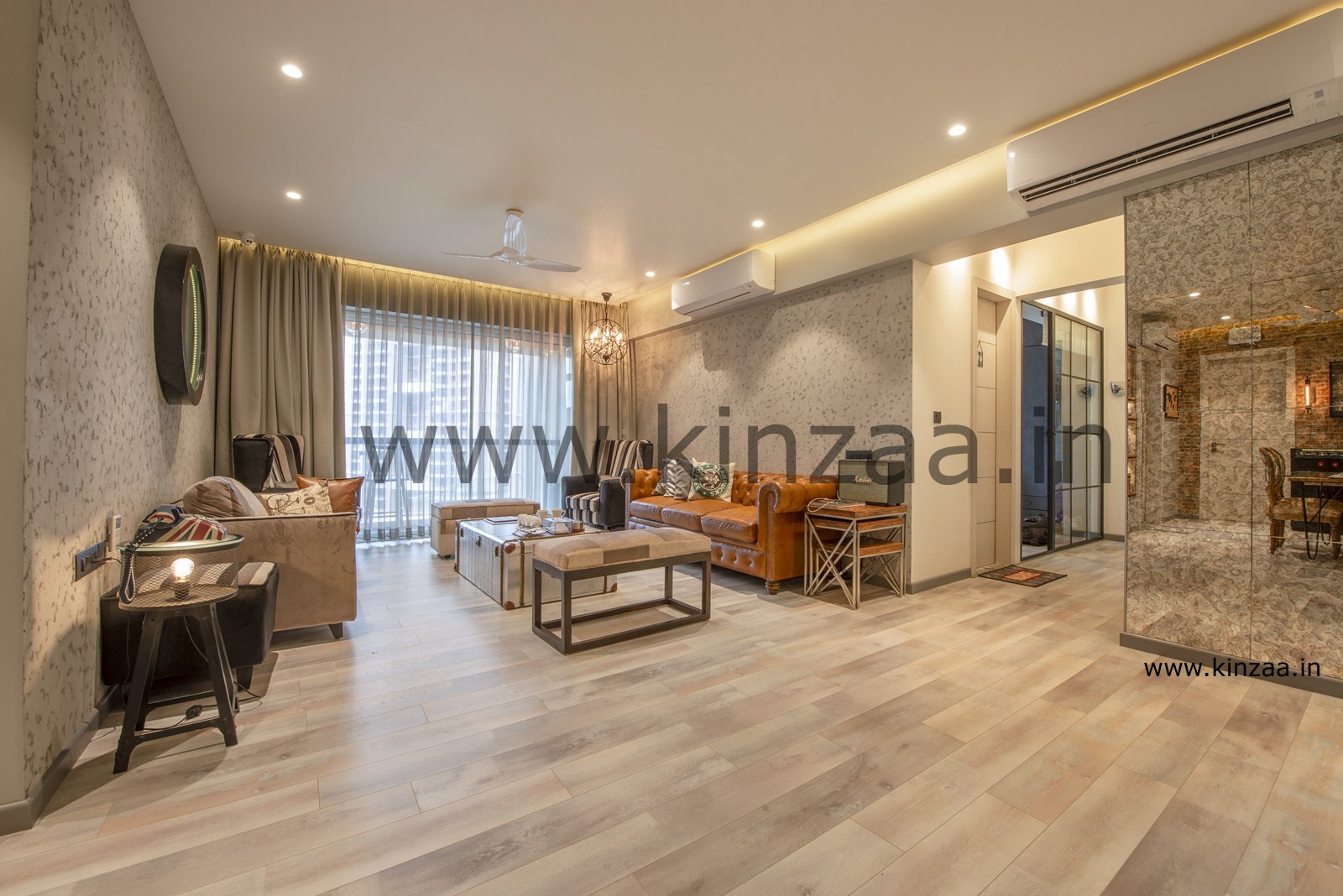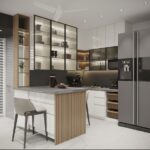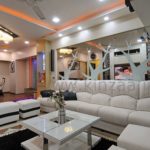
Every room should look well put together with the ideal mix of elements. Additionally, the room should be synergistic with the overall design style of the house. Rather than placing all of one’s favourite furniture and accessories in the room, it’s essential to plan the layout of the space so that each object in the room serves the purpose or beauty or functionality. The purpose of the room will also determine the design. For example, a bedroom needs to have a bed, wardrobes and side tables. In a small bedroom, any leftover space after arranging the essential furniture can hold other elements, whether it’s a chest at the foot of the bed for pillows and throws or a dresser unit in the corner for cosmetics. Working with a professional can help to create a well-designed room where every detail looks like it has been carefully thought about.
Where can I find ideas for small rooms?
Designing small rooms comes with a completely different challenge. All the essential furniture and accessories need to be accommodated within the limited space. Therefore, practicality often takes precedence over beauty. However, by consulting an expert interior designer or architect, it’s possible to make the room look good while it serves its primary function. Space saving design is the key to designing small rooms. Building customized furniture that brings a unique look to the room is a simple solution for making a small room efficient and unique. On Kinzaa, we have photographs and tips on space-saving design for small rooms to provide inspiration.
How do I choose the right colour for my rooms?
Besides the fact that the colour should match with the overall look of the house or apartment, choosing the right tone can influence the mood and the feel of the room. In smaller rooms, using a lighter shade for the walls helps to create the effect of amplitude. Similarly, in a big room, a darker colour can make the walls appear closer, bringing cosiness to the area. The purpose for which the room is used will also play a significant role when choosing the right colour. In a bedroom, soothing tones are preferable as the room is meant for relaxation. On the other hand, in a living room or kitchen, a bright shade can bring a cheery ambiance to the area. The best part of working with a professional is that you can get advice on the colours that are best suited to a room. Alternatively, you can get ideas for decorating the rooms with the right colour by browsing through the images on our platform.
How do I share my ideas for a room with the professional?
At Kinzaa, we make the process simple. Just browse through the beautiful photographs on our website and save them to an ideabook. Once you are ready to start designing or renovating your home, sharing the pictures in the ideabook makes it easier for the professional to understand the design style that you prefer.
What type of flooring is ideal for Indian homes?
Besides the purpose of the room and its location, the budget is a determinant of the type of floor for a house. For bathrooms and kitchens, easy to clean and moisture-resistant ceramic tiles might be the best choice whereas, for living rooms and bedrooms, wood or natural stone can bring in a cosier or earthier feel. The local climate should be considered before choosing the flooring for the room. In coastal cities such as Mumbai or Chennai, wood might not be the best choice for the flooring as it will absorb moisture from rain splashing in from the balconies, causing it to rot over time. While natural stone brings a sophisticated look to a living room, it requires coating regularly to make it moisture-resistant. Otherwise, it can absorb spills and get stained easily. Ceramic is by far the most maintenance-free option for flooring in Indian homes. Nowadays, ceramic tiles come in a range of designs, including some that resemble wood. They are also economical as they start at around INR 35 per square feet and go up to INR 200 per square feet for designer printed tiles. A professional will advise you on the pros and cons of each type of flooring, after considering your budget and lifestyle, to make it easier to choose the right type.
What are the popular styles for decorating rooms?
When decorating a home, you should choose a style with which you are comfortable as you will have to live with it for years. While choosing a theme to run across all the rooms of the house is essential to create a unified look, it’s not necessary that every room should be the same. By playing around with colours, textures and materials, it is possible to create a unique look for each room without deviating from the overall style.
Classic rooms
Classic rooms are the picture of elegance. Usually, they are composed of light colours and textures with exquisite furnishings, exotic accessories or stunning paintings creating a highlight in the room. It’s not uncommon to find a classic room with picture lights that put the focus on the artworks on the wall or spotlights on accessories. While lighter shades are more characteristic of the classic style, one can use a bolder shade on a feature wall to break the monotony.
Eclectic rooms
The advantage of the eclectic style is that it can portray the tastes of the older and the younger members of the family. The choice of colours, patterns and even furniture styles can clash in this style without seeming out of place. Classic accessories can be placed beside modern or chic paintings even within the same room.
Modern rooms
The modern style is a popular choice in most urban areas, especially for apartments. However, it might not be for every homeowner, especially those with young children as the glass, sharp edges and light colours aren’t child-friendly. This style is popular for kitchens as the metal finishes are low maintenance and easy to clean. Additionally, the use of white and neutral shades can make a small kitchen appear bigger than it is.
Scandinavian style
When it comes to implementing the Scandinavian style, the idea is to make an impression without using too many elements. Besides neutral colours with a few splashes of brighter contrasting tones, a few carefully chosen pieces of furniture that are functional and stylish complete the look.



